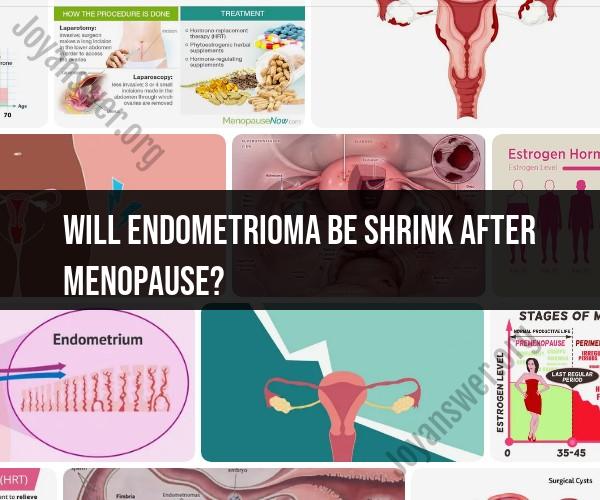Will endometrioma be shrink after menopause?
Endometriomas, which are cysts filled with endometrial tissue often found in the ovaries, typically respond to hormonal changes in the body, including those associated with menopause. However, the outcome can vary from one individual to another.
Here's what you need to know about endometriomas and their response to menopause:
Postmenopausal Changes: After menopause, which is defined as 12 consecutive months without a menstrual period, hormone levels in the body, including estrogen, decline significantly. Endometriomas, like other endometrial tissue, may respond to these hormonal changes.
Shrinking of Endometriomas: In many cases, endometriomas may shrink or become less active after menopause due to the decreased production of estrogen, which plays a role in stimulating the growth of endometrial tissue. This reduction in estrogen levels can lead to the regression of endometriomas.
Symptom Relief: For some postmenopausal individuals with endometriomas, the decrease in size or activity of these cysts may lead to the relief of associated symptoms, such as pelvic pain or discomfort.
Monitoring and Medical Advice: It's important to note that not all endometriomas will shrink or resolve after menopause. Some may persist or even continue to cause symptoms. If you have endometriomas and are approaching or have reached menopause, it's crucial to continue monitoring the condition with the guidance of a healthcare provider.
Surgical Intervention: In cases where endometriomas persist or cause severe symptoms after menopause, surgical intervention may be considered. This may involve removing the cysts or, in some cases, a hysterectomy (removal of the uterus and possibly the ovaries) if the condition is severe or causing significant issues.
It's essential to consult with a healthcare provider, preferably a gynecologist or reproductive specialist, for a personalized assessment and management plan if you have endometriomas and are entering or have already entered menopause. They can provide guidance on the best approach for your specific situation, whether it involves monitoring, medical management, or surgical intervention.













